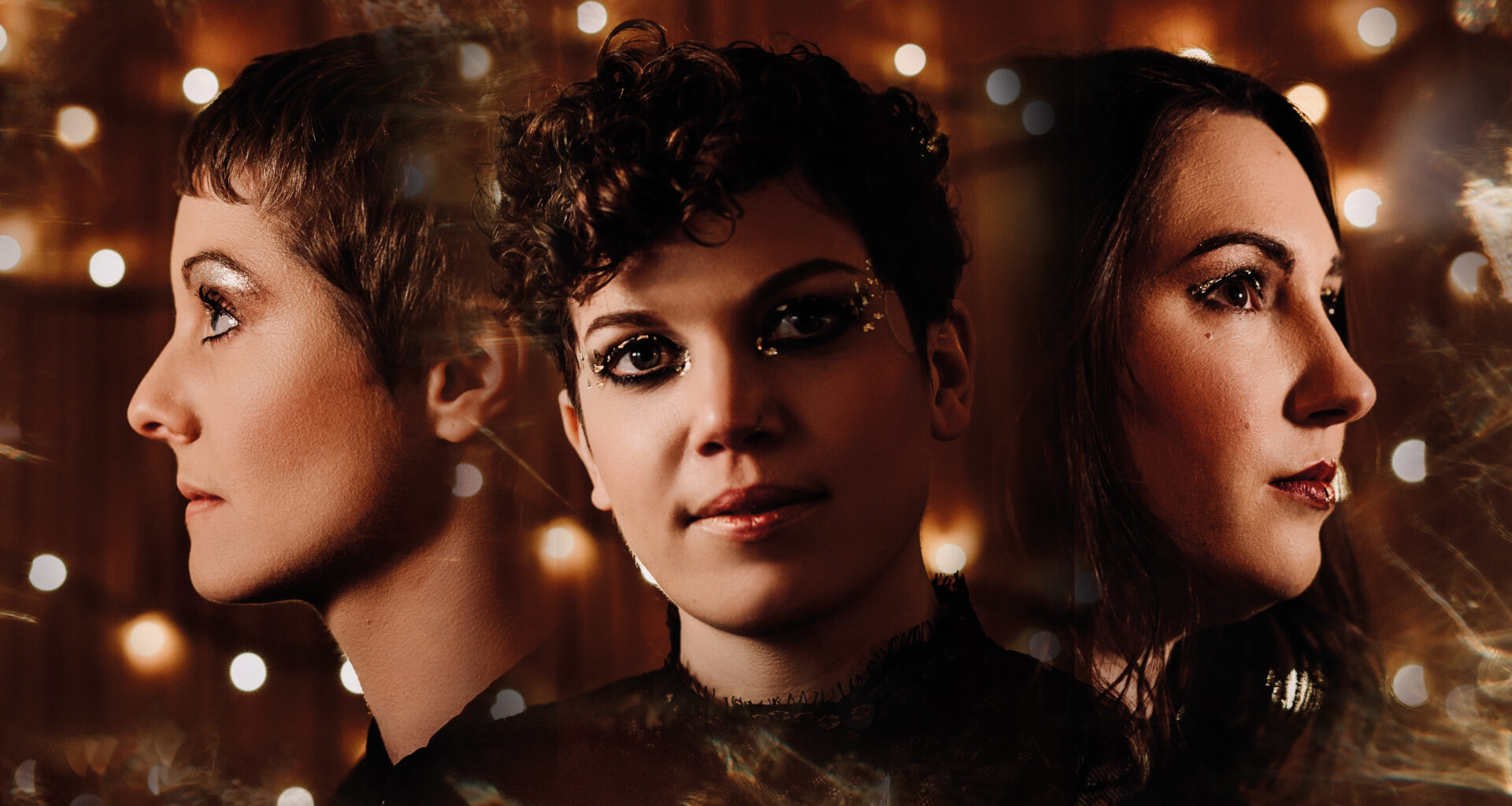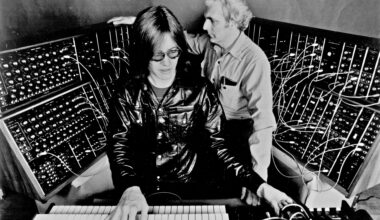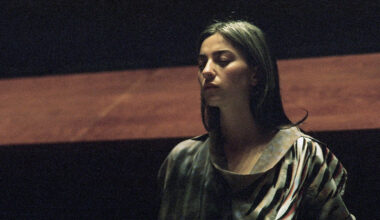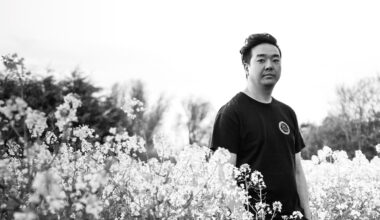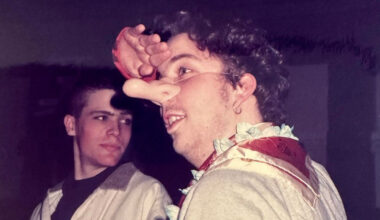They refer to themselves as “three mute girls”, but Haiku Salut are very happy to talk about their superb new album and their unusual live shows, which have taken place in churches, libraries and even the deep end of a swimming pool
Faced with the prospect of interviewing Haiku Salut, there’s one famous comedy quote that inevitably springs to mind.
“A vow of silence, how fascinating,” remarks Lord Percy with characteristic good cheer in the second series of ‘Blackadder’.
“Tell me about it,” he adds with typical brainlessness.
Given that Haiku Salut have been known to refer to themselves as “three mute girls” on account of their refusal to utter a single word during their live shows, you might forgive Electronic Sound for fearing we might end up in a similar predicament. Thankfully, on meeting the Derbyshire trio in the only bar in north London that isn’t showing the World Cup Final, it doesn’t take long for our worries to be set firmly aside.
Gathered around a table at the back of the bar, with two of the band nursing pints of cold lager, the third on mineral water having been tasked with driving back to their Derbyshire base, they’re anything but mute. We even achieve the seemingly impossible, and fairly quickly elicit a very erudite and carefully expressed defence of their vow of silence.
“It is true that we try not to speak when we perform live,” confirms Louise Croft, whose responsibilities within the band include synth, piano, accordian and drums, although each member plays around 15 different instruments in the live scenario. “We try to create an atmosphere and that would be ruined by us saying what the songs are about or announcing the titles. We have tracks that meld into each other, we have interludes, and then there’s the choreography of the swapping around.”
We can certainly see the logic in that, but what about communicating between themselves while on stage?
“No,” insists Sophie Barkerwood, the band’s samples and electronics specialist. “If something goes wrong, we’re pretty well attuned to each other and we’ll give each other a glance to say, ‘Check that?’.”
So does the lack of explanation mean their songs don’t really have hard and fast meanings? Not quite, according to Sophie’s bandmate/wife Gemma Barkerwood, whose primary duties are guitar and trumpet.
“There are personal meanings to the songs, but the audience’s role is as interpreters,” says Gemma. “I think art is that bit between a piece of music and the audience, or a piece of artwork and the audience. People feel different emotions and have different ideas about what they are experiencing.”
That said, Haiku Salut’s new album, ‘There Is No Elsewhere’, their third collection of sumptuous and evocative instrumentals, contains some of the most overt signposts yet. Track titles like ‘Occupy’ and ‘Choke Points’ (ironically one of the most delicate moments, with its exposed piano and plaintive acoustic guitar) give away a little of the febrile atmosphere in which they were conceived, even if there’s still space left for the listener to interpret them in their own way. Then there’s the album title itself, emphasised by its distinctive cover art, which portrays a portal peeking into idyllic countryside in the middle of a grey, dystopian wasteland.
“We were writing around the time of Brexit and the American election,” says Gemma. “So there is a theme to the whole album, which is togetherness and supporting other people.”
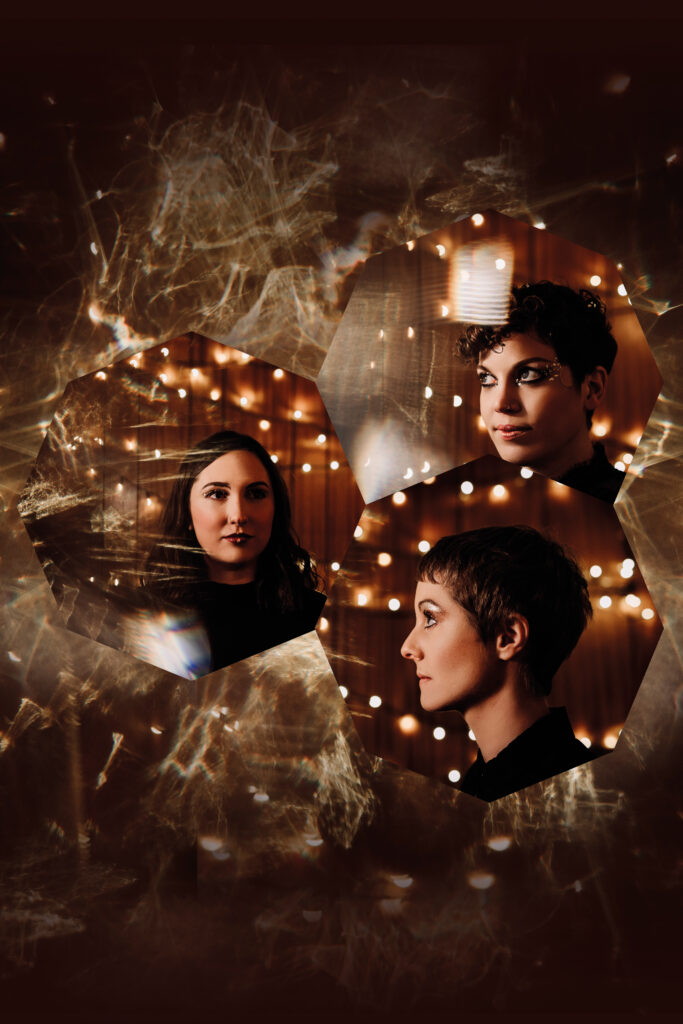
This impetus, according to Sophie, came as a reaction to the initial gloom they experienced in the aftermath of the EU referendum and US election results.
“We thought, ‘Why are we pursuing this creative endeavour when these things are happening?’,” she says.
“We got quite disillusioned. So when we first got together, it was a sort of escapism from all the political stuff.”
But once the project was underway, Gemma says they soon developed a feeling of active artistic resistance.
“We decided we wanted to make an album which had a feeling of triumph and belonging and connection,” she says. “Hopefully that comes across.”
So this is a call for action, self-organisation and unity in the face of gathering political clouds?
“There’s no point leaving it to other people to fix,” continues Gemma. “There’s no point thinking someone else is going to come along and sort it out.”
‘There Is No Elsewhere’ is undoubtedly the most natural synthesis of Haiku Salut’s fusion of traditional acoustic sounds and electronic experimentation to date. With ‘Cold To Crack The Stones’, the album’s grand opener, and ‘The More And Moreness’, they’ve even added the symphonic tones of the Glastonbury Brass Band. The appearance of the Glastonbury band rather than an outfit more local to them was a decision taken “in the spirit of togetherness”, because a friend of one of the trio’s fathers is a member. The brass gives these two tracks an instantly comforting and evocative flavour, typically English and, despite its geographic origins, bringing the rugged landscape of the north to mind.
The village in the Derbyshire Dales that Sophie and Gemma call home, a 30-minute drive from Derby, where the band formed and where Louise still lives, has also had an important influence on Haiku Salut. Literally so in the case of ‘Bow Wood’, which was inspired by a walk they take in the wood of the same name and features field recordings captured on location, including a burbling stream nestled in alongside a piano picking out a melancholic melody.
Sophie admits that the cement between the group’s electronic and acoustic elements might have been more pronounced in the past than it is on ‘There Is No Elsewhere’. With tracks like ‘I Am Who I Remind You Of’ and ‘Occupy’, the emphasis has shifted to a subtle melodic integration, with a chiming, resonant sound that could almost be Steve Reich or Aphex Twin.
It’s probably this natural coming together of genres and influences that has seen ‘There Is No Elsewhere’ being widely heralded as a giant leap forward for the trio, who met at the University of Derby in 2010, bonding over a shared love of Sigur Rós and post-rock bands like 65daysofstatic and Hope Of The States.
Their mutual love of the latter, they don’t mind admitting, was a significant influence on their 2013 debut offering ‘Tricolore’. Since then, with the writing and recording of the 2015 follow-up, ‘Etch And Etch Deep’, and this third album, they’ve slowly but surely been finding and developing their own techniques and sound.
As well as their recorded output and a guest spot on Public Service Broadcasting’s ‘Every Valley’ album last year, Haiku Salut have been building their reputation as a unique live act with their distinctive “lamp show”. Launched at the Déda creative centre in Derby in 2013, it’s been presented in all manner of weird and wonderful venues since then.
Produced with the help of long-term collaborator Robin Newman, the lamp show features 20 vintage charity shop lamps which have been synchronised to various parts of the band’s songs via MIDI, flickering, pulsing and fading in time with the music. The show will be taking to the road across the UK again this autumn, the gigs including a return to the atmospheric St John Church on Bethnal Green in east London, where the band have already performed several times.
It’s perhaps the perfect visual representation of the Haiku Salut aesthetic, drawing on nostalgic, reassuring ideas but re-routing them through new technological configurations. It’s also taken the group away from the predictability of the rock ’n’ roll circuit and propelled them into new spaces, from libraries and churches to a swimming pool in Manchester.
“We played in the Westminster Reference Library, which was amazing,” recalls Sophie.
“The lamps light up all the little nooks and crannies in a space,” adds Gemma. “It’s great in churches – somewhere like St John on Bethnal Green suits it really well because it’s such a tall building. It’s beautiful.”
“A haunted living room, a ballroom, the deep end of a swimming pool…” continues Sophie.
“Obviously, there was no water in there,” adds Louise. “We were down in the bottom and people could peer from the side of the pool to watch us.”
While that was certainly a visual treat, playing amid the tiled walls of an empty swimming pool, not the most conducive surroundings for a perfect acoustic rendering, had its sonic challenges. Add in the fact that the event was a beer festival and the band were lavished with handfuls of free drinks tokens, you can perhaps understand why this was one of the rare moments that the trio briefly broke their vow of performance silence.
“Yeah,” laughs Louise, “Gemma and Sophie did have a bit of an onstage domestic.”
“With the free tokens it was a bit like, ‘How much stout can you drink?’,” admits Gemma with a look that’s half guilt, half amusement. “As it turns out, quite a lot.”
“Obviously,” says Sophie, moving swiftly on, “as musicians you really want people to hear your music as close to the way you’ve actually made it, so swimming pools and churches aren’t always ideal.”
Get the print magazine bundled with limited edition, exclusive vinyl releases

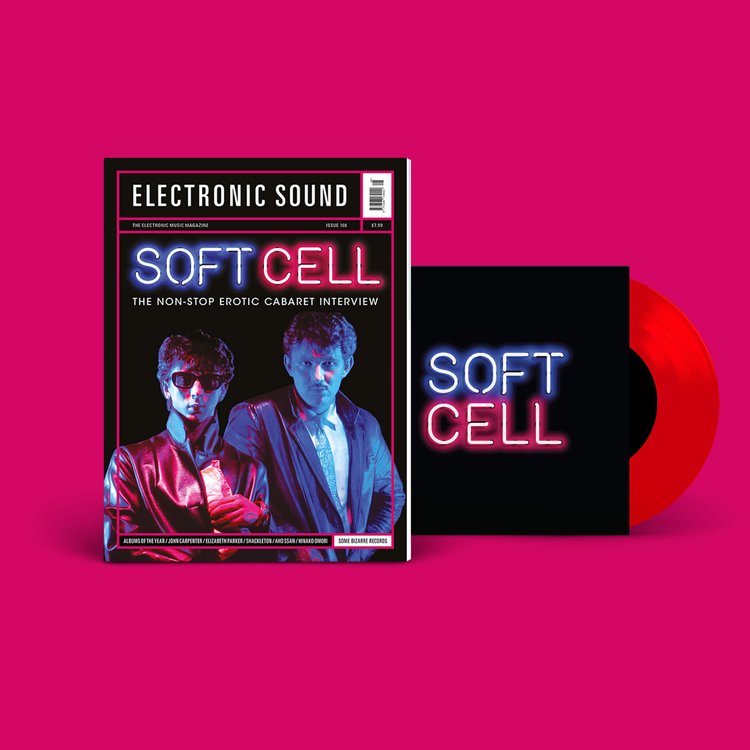
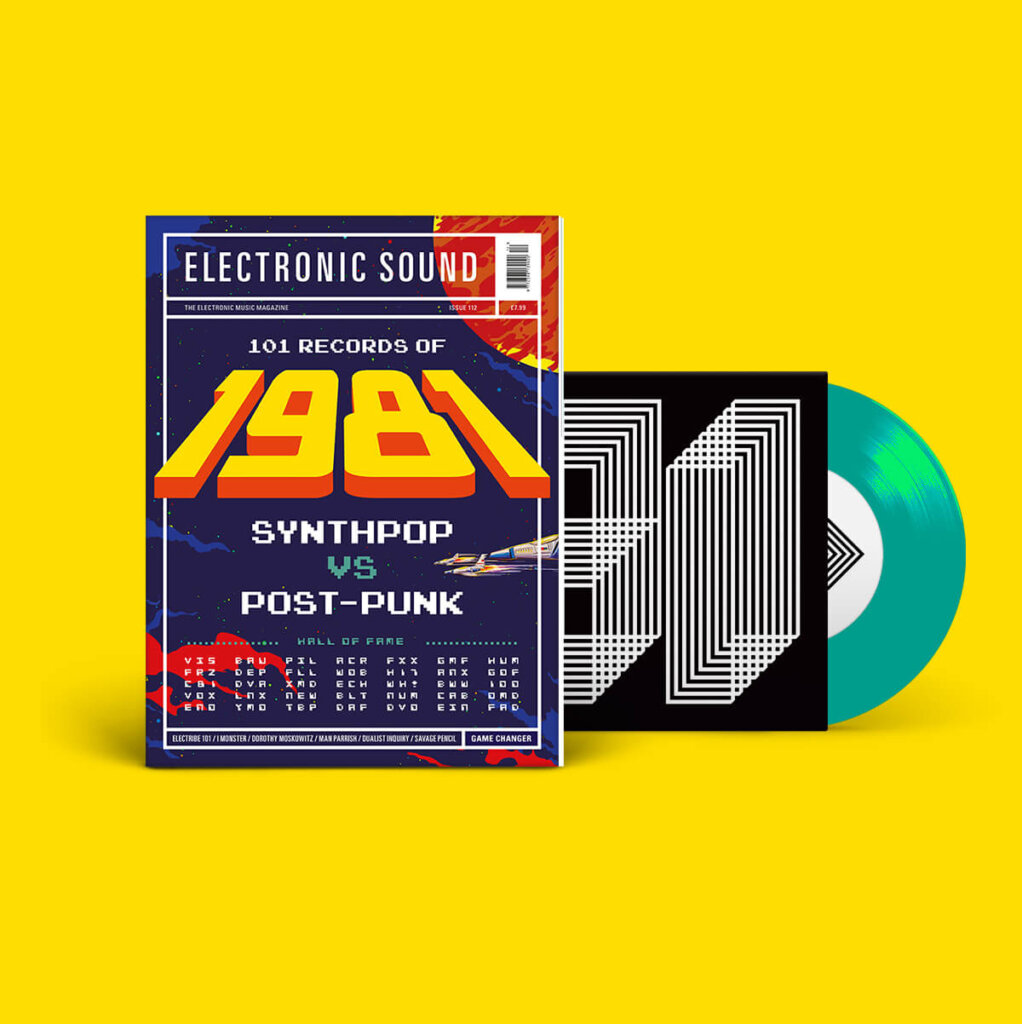
So where, we ask, would be the ideal venue for the band to play?
“A duvet factory perhaps,” reckons Sophie, “which would dampen down the sound. We haven’t played one of those yet. A planetarium is on the list too. We’ve approached a few, but they’re quite expensive.”
Their mission to fuse the latest technology with their music doesn’t end there, though. By the time you read this, Haiku Salut will have performed with the Robot Orchestra at Newcastle’s Centre For Life, part of the month-long Great Exhibition of the North 2018, with machines programmed to deliver their parts using self-playing musical instruments.
There’s also a promo video for ‘Occupy’, made with VR artist Aaron Bradbury, which comes in three different formats. As well as a “flat” version for YouTube, Gemma explains that there will be a 3D version and a virtual reality version, where you can wander between the band members as they play live in full lamp show mode.
Be warned, though. That is often a hectic place to be. With each of them playing a plethora of instruments, their gigs are highly choreographed affairs. You might witness Louise playing her accordion with one hand and a drum part with the other, for example, only to suddenly swap duties with Sophie or Gemma in the middle of a song.
“There are times when you’re stuck on one side of the stage and you only have one arm spare,” admits Louise. “So we do have to adapt things sometimes.”
Even so, there’s no denying that Haiku Salut go to pretty extraordinary lengths, not only creatively but also in sheer physical terms, to recreate the complex magic of their recorded material in the live arena.
Maybe we should be more understanding of the fact that they’re not really up for delivering cheesy between-song banter.
Three mute girls they may be, but one great band all the same.
‘There Is No Elsewhere’ is out on Prah.
